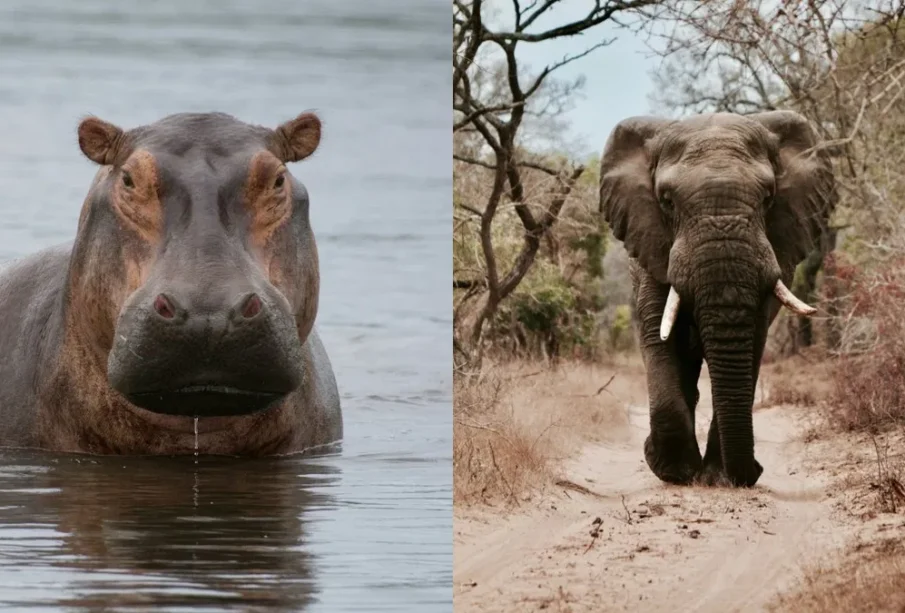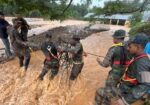Namibia to Cull Over 700 Wild Animals to Aid Drought Relief

Namibia has announced a plan to cull more than 700 wild animals, including elephants, hippos, and zebras, in an effort to combat severe food shortages exacerbated by the worst drought the country has faced in a century. The meat from these animals will be distributed to those struggling with food insecurity.
The culling, which includes 83 elephants, 30 hippos, 60 buffalo, 50 impala, 100 blue wildebeest, and 300 zebras, was detailed by Namibia’s Ministry of Environment, Forestry, and Tourism on Monday. The animals will be sourced from national parks and communal areas where their numbers exceed the available resources. Professional hunters will carry out the culling, with the goal of alleviating the impact of the drought.
Namibia declared a state of emergency in May due to the worsening drought, which is expected to leave around 1.4 million people—about half of the population—facing severe food shortages. By reducing wildlife populations in areas with scarce resources, the culling aims to ease pressure on water supplies and mitigate conflicts between humans and animals seeking food and water.
The culling will also help reduce the number of elephants in conflict-prone areas, where drought conditions have increased the risk of encounters between wildlife and people. “Eighty-three elephants from identified conflict zones will be culled, and the meat will be allocated to the drought relief program,” the ministry said.
Southern Africa, home to over 200,000 elephants, has seen significant impacts from the drought, with many animals perishing due to dried-up water sources. In addition to elephants, meat from the other culled animals will be distributed to rural areas, where the drought’s effects are most severe.
So far, more than 150 animals have been culled, providing over 125,000 pounds of meat for distribution. The ministry expressed its relief at being able to support those in need during this critical time.
Namibia’s actions come amid a broader crisis across southern Africa, where El Niño and climate change have led to drastically reduced rainfall and intensified food insecurity.














